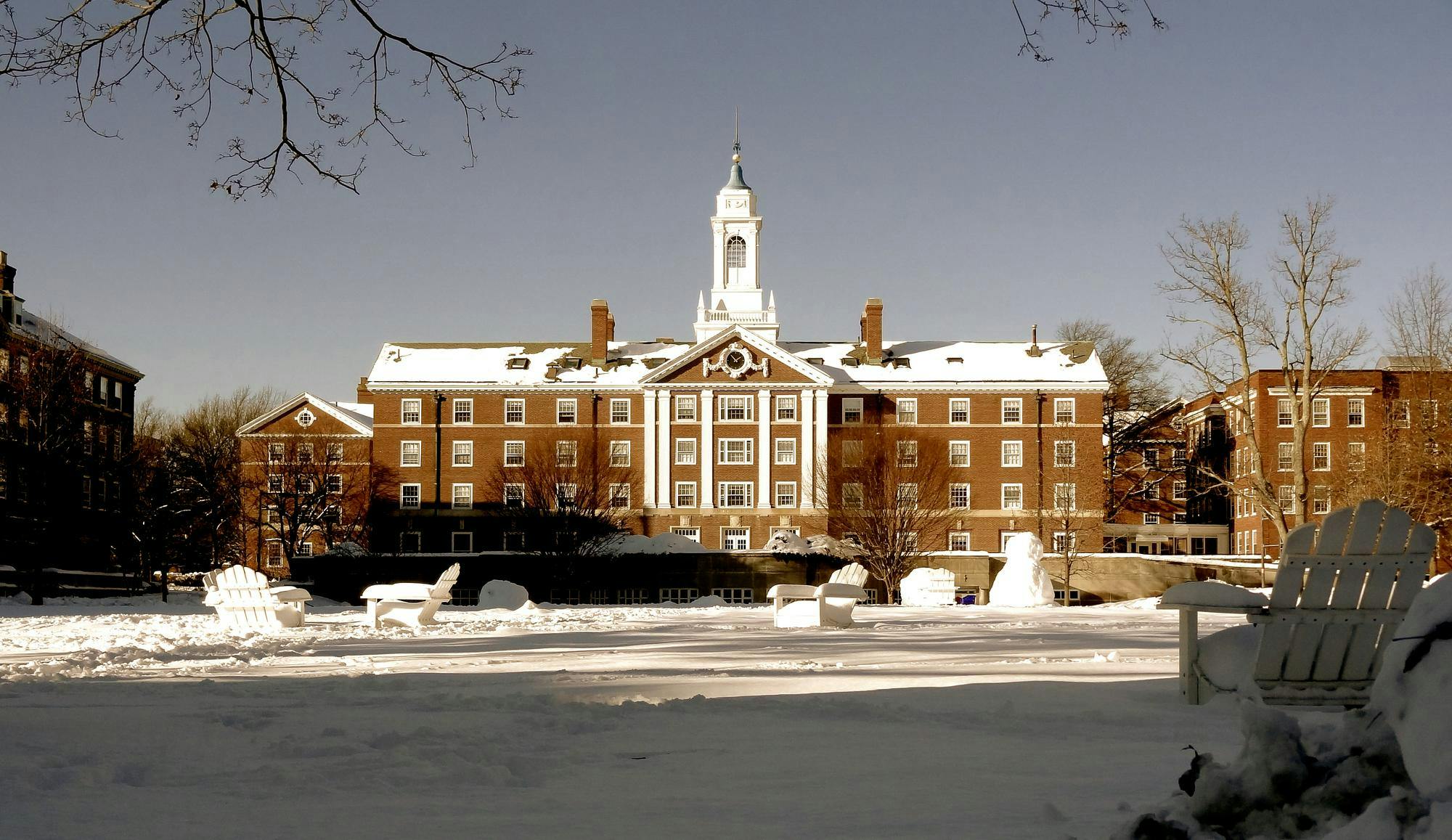Sol Gittleman has been a college professor since the 1960s. Now, he has a new book which explores the history of all American colleges. “An Accidental Triumph: The Improbable History of American Higher Education,” which will be released on Sept. 15, is a compelling history of the paradoxes of college in the US.
Gittleman, now the author of six books, is the Alice and Nathan Gantcher University professor emeritus at Tufts University. He taught from 1964 to 2015 and was a provost from 1981 to 2002, receiving multiple accolades for his work along the way.
For many reasons, Gittleman writes, American schools fail — think cheating scandals, our complicated love for football, prestige battles or prolonged issues with increasing diversity. Gittleman’s question at the start of his book frames the dialogue: “If American higher education is such a failure, why are students and scholars from all over the world still so eager to secure a place in one of these institutions?”
The book starts with an exploration of colleges’ shaky beginnings. In the 17th century, colonial America found space only for colleges defined by white Christians. Harvard was a school for Congregationalists, Yale was for Calvinists and so on. Faith-based institutions were not the place for rigorous education; instead, Gittleman argues, academic achievement was found in Europe.
American education shifted with the Morrill Land Grants of 1862 and 1890 which provided land for schools, primarily focused on vocational training. For the first time, working-class individuals were able to attend college.
Next, well-known American philanthropists saw opportunity in education and pumped money into developing research at colleges. Names like Rockefeller, Stanford or Cornell are a few of these types.
In an interview with the Daily, Gittleman identified the true intention of their charitability: “All those private philanthropists wanted … to get business and the government together and make great progress to make money,” he said.
In many ways, American higher education operated like a business, a space to make money and gather prestige. The industrialists whose names are entrenched in the American consciousness started this competitive tradition. Indeed, Americans were in a race against Germany — whose institutions were the best in the late 19th century — to make the best research institutions.
Germany’s defeat in World War I seemingly provided space for America to become competitive in education, but nativism and eugenics denied spots in college to bright, ambitious immigrants.
Gittleman identified the ending of World War II as the cause of colleges’ eventual “accidental triumph.”
“What changed everything was the G.I. Bill,” he said. “We got a whole new generation of different kinds of people going to college and getting to become faculty … nobody expected it.”
Gittleman’s decision to write his book was informed by his experience as an educator, his more than five-decade long career and the circumstances of the unique moment he entered academia. In “Accidental Triumph,” he writes, “My generation of academics was the luckiest in history. We entered the profession in the 1950s, when deans were desperate to find anyone with a Ph.D. and a pulse.”
Schools needed professors to teach the influx of veterans, and they got them with government-sponsored education. Finally, America had the volume of talent to become the country with the best higher education.
Today, Gittleman said that Americans are only interested in “everything that is only bad” in American education, such as scandals and cheating, despite our system’s relative greatness. “There has never been a university system like this one. For excellence, for mediocrity … no other country has five or six thousand degree granting institutions,” he said.
But Gittleman didn’t write “An Accidental Triumph” to solve the extensive issues of American higher education, nor does he want Americans to glorify the “good old days” of the 1920s and 30s; he called that era “awful” because of a lack of diversity. “If that’s the good old days, they got it wrong,” Gittleman said.
Gittleman wrote his book so that readers will remember his generation’s experience with WWII and the G.I. Bill.
“I wanted to make sure they knew that the first generation who came back from the war, who became faculty, changed the university [and] changed everything,” he said.
“An Accidental Triumph” is a concise and well-written chronicle about the accidents that shaped American higher education. It’s an enjoyable read, with a clear voice from Gittleman, who is candid about America’s successes and failures; we may be envied by the world, but we have much to work on.






